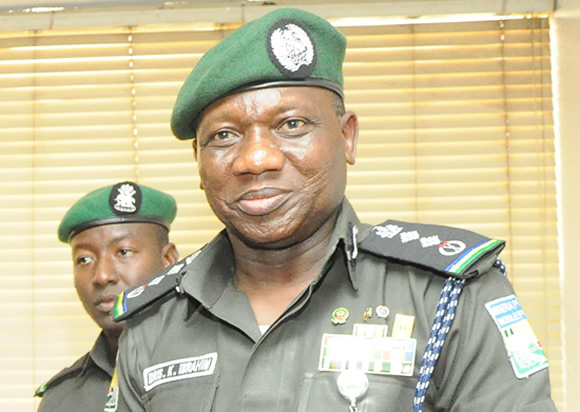
DEMOCRATIC rule has yet to curb the appetite of the police to kill indiscriminately. A workers’ protest in Lagos, which turned fatal after the police intervened, is symptomatic of the cruel methods employed by our law enforcement agents. The police had opened fire on the workers of a manufacturing company, Chi Limited, who were protesting against their treatment in the sharing of Yuletide gifts. Repeatedly, the police have shown their contempt for the sanctity of human life. They should stop using disproportionate force against unarmed civilians.
Daniel Osikoya, 19, a casual worker, was shot dead in the melee. His wounded colleague is said to be recuperating in hospital. Already, the Lagos State Government has intervened and has asked the company to pay compensation to the families of the victims. It is a step in the right direction, but it (Lagos State) must go further and partner the relevant federal agencies to see to the prosecution of the officers that killed Osikoya. This could serve as a deterrent to other trigger-happy officers.
The Lagos State Police Command justifies the fatal shooting by stating that “the command has studied the situation and discovered that the personnel deployed acted in accordance with the rules (of engagement).” This is unacceptable. The police ought not to use live ammunition to quell a civil protest by workers. This is the standard global practice, except in totalitarian states. The level of threat should determine the reaction of the police so as to reduce fatalities. The Inspector-General of Police, Ibrahim Idris, should not allow the incident to be swept under the carpet. However, the IG should investigate the claim by the Lagos Command that its officers used their guns following an attack on the police, in which caustic soda was used, injuring an inspector, who was later admitted to the hospital.
Daniel had great ambitions. According to his mother, the boy “was determined to go to higher institution but he did not pass English Language. He wanted to sit the General Certificate of Education and the Unified Tertiary Matriculation Examination this year. The policeman that killed my son must not go scot-free. He should be fished out and punished,” she said. A killer-cop has cut short a mother’s hope. Really, the police have a long history of extrajudicial killings. In 1971, police killed Kunle Adepeju, an undergraduate of the University of Ibadan, who was trying to help his fallen colleague during a protest against poor feeding at the school. In 1978, Akintunde Ojo of the University of Lagos, Akoka, was shot dead during another protest against poor feeding. In the ensuing protests against Ojo’s death, police shot dead six students of the Ahmadu Bello University, Zaria.
Other killings by security agents included that of Dele Udoh, the Dawodu brothers, Victor Emmanuel, Beauty McLeod, Idongesit Udoh, Ademola Daramola and Joseph Izu, a Shooting Stars FC of Ibadan player. Udoh, an athlete, was shot dead by police in 1981 in Lagos, while the Dawodu brothers met the same fate in Lagos in 1987. Emmanuel was returning from church in Yenagoa, Bayelsa State, in 2011, when he was murdered by a policeman at a checkpoint.
McLeod, a tennis coach and a mother, was killed for arguing with an officer; Idongesit lost her life after police fired at a tricycle operator in Ikotun, Lagos, who allegedly refused to give them money; Daramola was shot by an officer, Segun Fabunmi, during the 2012 petrol subsidy protests while he was playing football on a Lagos street; and Izu by Joint Military Task Force operatives in Ahoada, Rivers State last October. The list drips with blood.
But this is the 21st century. Nigeria needs to deal with this trend by reforming the police in line with the best global practice. Elsewhere, security agents comport themselves with decorum, even in the face of provocation. If they violate the rules of engagement, they are prosecuted. In a report last year, the United Kingdom’s Ministry of Interior (Home Office) noted that the police fired their guns just seven times in the one year to March 2016. British police do not routinely carry firearms, though specially trained officers are rapidly dispatched to areas where threats are reported. There is an immediate investigation when a British policeman opens fire. “No firearms officer wants to shoot someone. It is a last resort,” says a UK police officer.
The “Umbrella Movement,” a series of pro-democracy protests against China in Hong Kong in 2014, attracted large crowds; and up to 1.7 million South Koreans massed in protest against their president in Seoul last year. Yet, the police there did not become reckless. In a poignant case, a military court convicted an Israeli soldier of manslaughter last week. Elor Azaria was charged with shooting at a Palestinian terrorist, Abdel al-Sharif, who was lying on the ground wounded at the time of the incident. Al-Sharif had stabbed an Israeli soldier before he got injured. “One cannot use this type of force, even if we are talking about an enemy’s life,” the court said in its verdict. The police here should be subjected to this kind of rules, too.
To prevent unnecessary fatalities during civil protests, the police should device modern modus operandi. Security experts recommend the use of Non-Lethal Crowd Dispersion means. These devices include water cannon, taser, rubber bullet, tear gas and pepper spray. Some of these gadgets temporarily incapacitate agitators. To protect themselves during protests – as is the case in other countries – the police should acquire shields, bullet-proof vests and helmets. In December, the IG promised to check extrajudicial killings by the police. This is indeed a very good opportunity to back that promise with action.
END

Be the first to comment